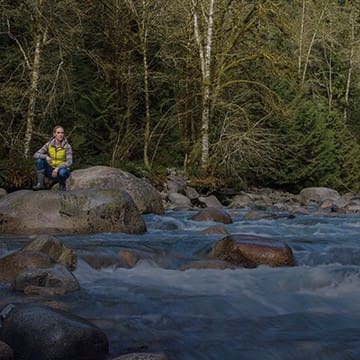
The Master of Engineering Leadership (MEL) programs bridge the gap between theory and practice and between engineering and business. These programs were designed for engineers who want to increase their knowledge and enhance their employment mobility. It is very difficult to advance in any organization unless you have a firm grasp of business and leadership essentials. If you want your projects to be greenlighted, you need to know how to make a business case, manage people and engage the public.
In my view, the Integrated Water Management program is particularly suited to the MEL. By its nature, working in this area requires managing multiple disciplines and having the skills to bring together many different professionals. This includes engineers from a wide range of disciplines, as well as scientific, legal and financial experts. The MEL in Integrated Water Management offers students a unique learning environment thanks to the experience and breadth of the program’s instructors and the combination of courses in both engineering and business.
My research has enabled me to work closely with municipalities on a range of projects. These include working with the District of Maple Ridge on upgrading their water distribution network, the City of Richmond on adapting flood management strategies for climate change, and with BC Hydro on dam safety. I also worked with the community of Ucluelet on the west coast of Vancouver Island to model tsunamis and storm surges to estimate the potential impacts on people and infrastructure. This work led to recommendations on escape plans, signage and information guides.
My current research focuses on techniques for managing water quality in the face of deep uncertainty, adapting to climate change being a prime example. Existing policies are in place to help us reach water-quality goals, but with a changing environment, those water systems are being strained beyond the policies we have in place to manage them. I’m developing techniques to help us adapt to changes, including new measures of robustness and resilience, and identifying signposts, or water quality thresholds, that indicate when it is time to implement a change in a water quality management strategy for a given system.
I’m very excited to take on the role of director of the Integrated Water Management program and oversee its continued evolution to ensure our students graduate with the diverse breadth of skills and knowledge they will need to make a difference in this area.
Dr. Lence is the former director of the MEL in Integrated Water Management.
Experience
Dr. Lence joined UBC in January 1997 from the University of Manitoba, where she was an Assistant and Associate Professor in the Department of Civil and Geological Engineering. She received her doctorate from the University of Illinois at Urbana-Champaign for research on evaluating the engineering, environmental and economic impacts of water pollution control policies, in particular emissions trading programs. She teaches undergraduate courses in water resources engineering and decision-making techniques in Civil Engineering, and graduate courses in advanced decision-making techniques and pollution modelling.
Credentials
“By its nature, working in this area requires managing multiple disciplines and having the skills to bring together many different professionals.“
Application Deadlines
The online application portal for the January 2025 has closed.
Get ready to apply!
Admissions for the 2026 intake will open on January 1, 2025.
How to ApplyIntegrated Water Management
Apply your technical and leadership skills in developing sustainable water management solutions.
Read MoreIntegrated Water Management
Apply your technical and leadership skills in developing sustainable water management solutions.
Read More